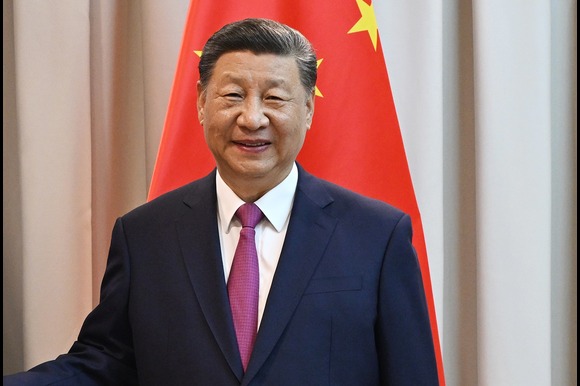China has issued a strong rebuke of a new trade agreement between the United States and the United Kingdom, voicing concerns that the pact could be used strategically to push Chinese products out of British supply chains. The agreement, seen as a major development in US-UK economic relations, has sparked new diplomatic tensions just as the UK’s recently elected Labour government seeks to repair its strained relationship with Beijing, according to a report by the Financial Times.
The deal, originally initiated under the Trump administration, represents the first substantial US trade agreement since Washington imposed a wide range of reciprocal tariffs last month. It includes rigorous national security provisions aimed at sectors such as pharmaceuticals and steel—clauses that Chinese officials interpret as a direct threat to their country’s economic interests.
In a statement to the Financial Times, China’s Ministry of Foreign Affairs underscored its opposition, stating, “Co-operation between states should not be conducted against or to the detriment of the interests of third parties.” The ministry further emphasized that a foundational principle of international trade is that agreements should not be designed to target other nations.
This pointed response from Beijing places the UK in a challenging diplomatic position, as the new Labour government, led by Prime Minister Sir Keir Starmer, navigates a geopolitical tightrope between two global superpowers. While London has been signaling a willingness to rebuild its economic relationship with China, the new agreement with Washington threatens to undermine those overtures.
Beijing has repeatedly cautioned countries against entering into bilateral agreements with the United States that could adversely affect Chinese industries. Chinese officials are particularly wary of what they perceive as US President Donald Trump’s strategy of using bilateral trade negotiations to isolate China from global supply networks.
Although the trade agreement offers some relief in the form of tariff reductions—particularly benefiting British automotive and steel exports—it still imposes a 10 percent duty on a broad range of other UK goods. More significantly, the deal includes industry-specific stipulations requiring the UK to “promptly meet US requirements” concerning supply chain security and the “ownership of production facilities.”
According to British officials who spoke with the Financial Times, President Trump made it clear during negotiations that these clauses were explicitly designed to target China. This disclosure has deepened Beijing’s concerns, particularly as the Starmer government had previously signaled a more conciliatory approach toward China and a willingness to reset bilateral relations.
“The UK should not have rushed to agree to the deal,” a Chinese government adviser told the Financial Times, suggesting that Beijing would be compelled to respond to what it views as a hostile economic maneuver. Zhang Yansheng, a senior researcher at the China Academy of Macroeconomic Research, criticized the agreement’s restrictive clauses, warning that they could be even more harmful than tariffs. “This type of poison pill clause is actually worse than the tariffs,” Zhang said, urging China to “bluntly raise the issue in talks with the UK.”
Despite the diplomatic strain, UK officials have sought to reassure Beijing, stressing that trade with China “remains important to the UK” and reaffirming a commitment to “engage pragmatically in areas rooted in UK and global interests.” However, it remains to be seen how China will formally respond to a deal it views as undermining its position in the global economy.






